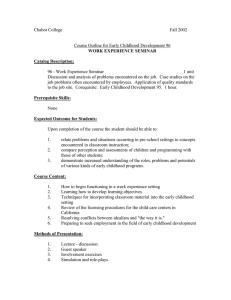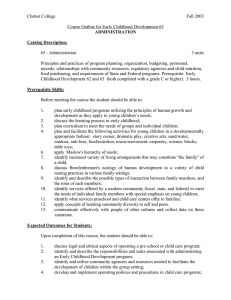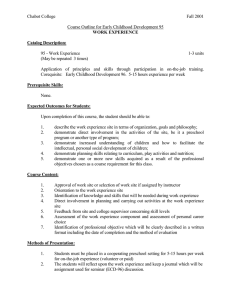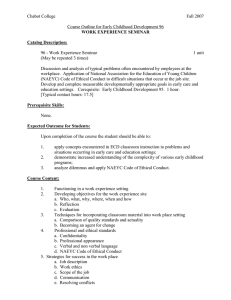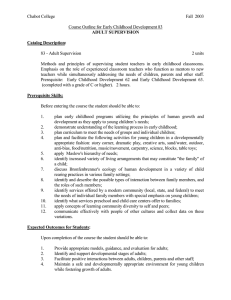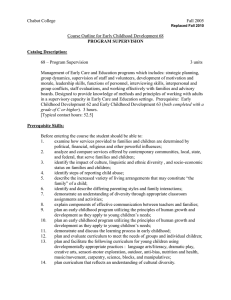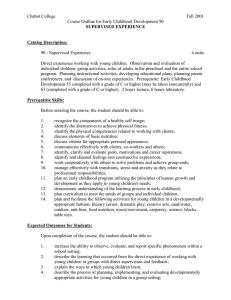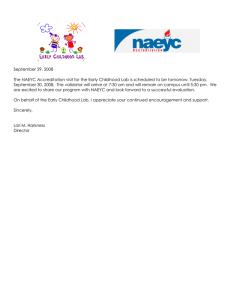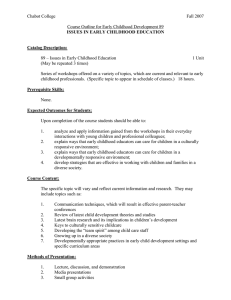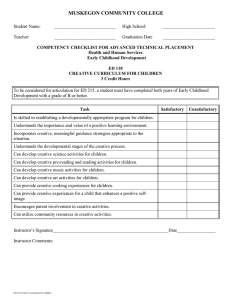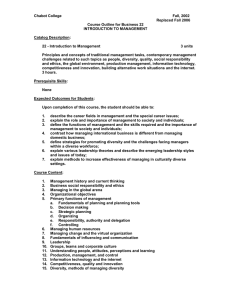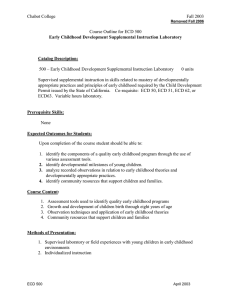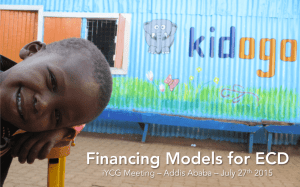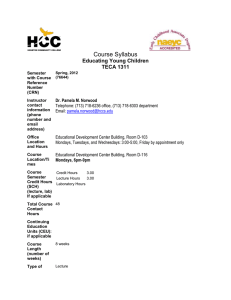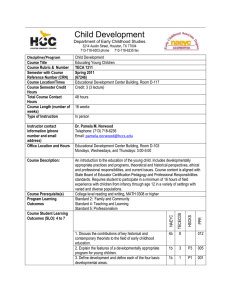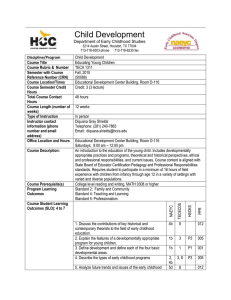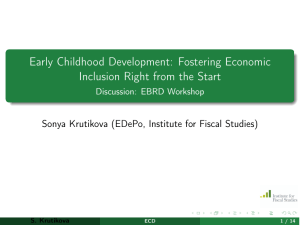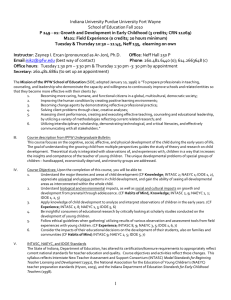Chabot College Fall 2007 Course Outline for Early Childhood Development 95
advertisement
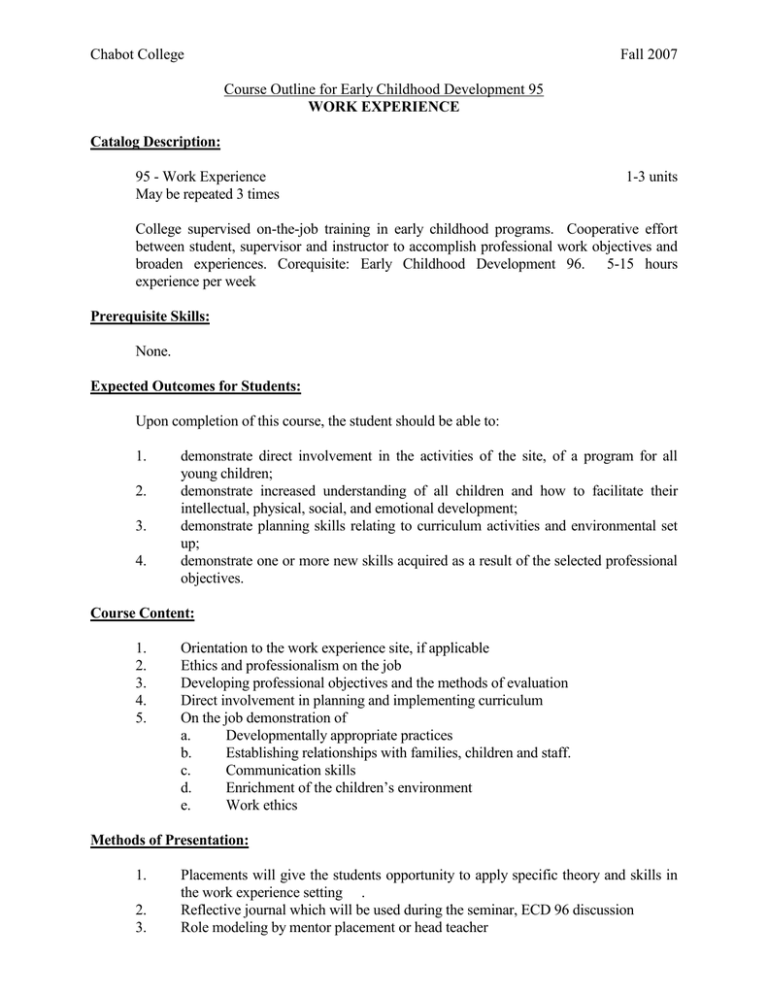
Chabot College Fall 2007 Course Outline for Early Childhood Development 95 WORK EXPERIENCE Catalog Description: 95 - Work Experience May be repeated 3 times 1-3 units College supervised on-the-job training in early childhood programs. Cooperative effort between student, supervisor and instructor to accomplish professional work objectives and broaden experiences. Corequisite: Early Childhood Development 96. 5-15 hours experience per week Prerequisite Skills: None. Expected Outcomes for Students: Upon completion of this course, the student should be able to: 1. 2. 3. 4. demonstrate direct involvement in the activities of the site, of a program for all young children; demonstrate increased understanding of all children and how to facilitate their intellectual, physical, social, and emotional development; demonstrate planning skills relating to curriculum activities and environmental set up; demonstrate one or more new skills acquired as a result of the selected professional objectives. Course Content: 1. 2. 3. 4. 5. Orientation to the work experience site, if applicable Ethics and professionalism on the job Developing professional objectives and the methods of evaluation Direct involvement in planning and implementing curriculum On the job demonstration of a. Developmentally appropriate practices b. Establishing relationships with families, children and staff. c. Communication skills d. Enrichment of the children’s environment e. Work ethics Methods of Presentation: 1. 2. 3. Placements will give the students opportunity to apply specific theory and skills in the work experience setting . Reflective journal which will be used during the seminar, ECD 96 discussion Role modeling by mentor placement or head teacher Chabot College Course Outline for Early Childhood Development 95, Page 2 Fall 2007 Assignments and Methods of Evaluating Student Progress: 1. 2. Typical Assignments a. Students will be directed at the work site by the site supervisor and in all placements students will be involved with: 1) children 2) program 3) curricula 4) staff-relations 5) maintaining the environment 6) contact with parents 7) communicating with the site supervisor b. Completion of professional objectives agreed upon by instructor, student and site director by established deadlines Methods of Evaluating Student Progress a. Completed objectives b. Completed required number of hours on the job Textbook(s) (typical): Ethics and the Early Childhood Educator, NAEYC, 2005 or latest edition. Special Student Materials: None. tf:Word/ECD 95 Revised: 10/24/06
